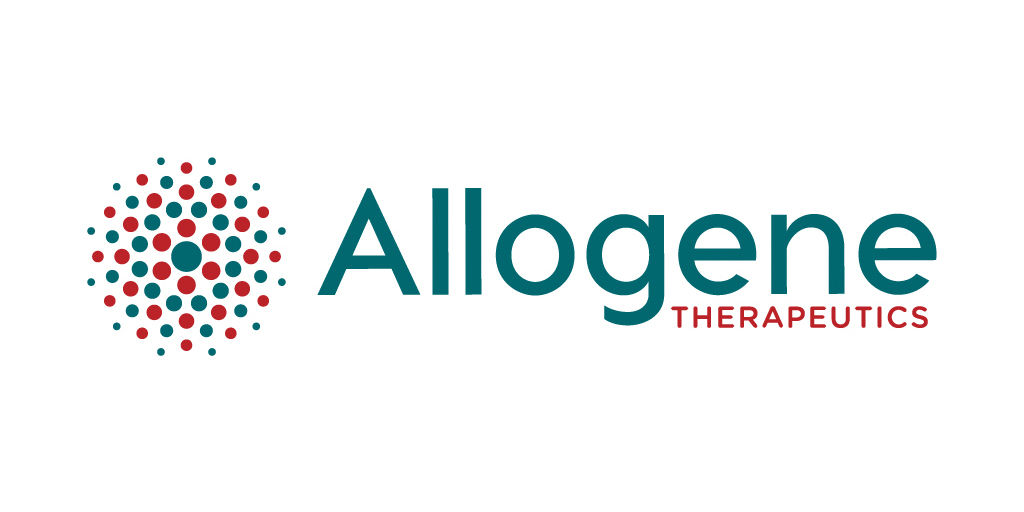更新于:2024-05-06
PD1 Turbo CAR-T cell therapy (Allogene Therapeutics)
更新于:2024-05-06
概要
基本信息
非在研机构- |
最高研发阶段临床前 |
首次获批日期- |
最高研发阶段(中国)- |
特殊审评- |
关联
100 项与 PD1 Turbo CAR-T cell therapy (Allogene Therapeutics) 相关的临床结果
登录后查看更多信息
100 项与 PD1 Turbo CAR-T cell therapy (Allogene Therapeutics) 相关的转化医学
登录后查看更多信息
100 项与 PD1 Turbo CAR-T cell therapy (Allogene Therapeutics) 相关的专利(医药)
登录后查看更多信息
1
项与 PD1 Turbo CAR-T cell therapy (Allogene Therapeutics) 相关的文献(医药)Biomedica : revista del Instituto Nacional de Salud4区 · 医学
[Ten years of chloroquine efficacy for uncomplicated Plasmodium vivax malaria treatment, Turbo, Antioquia, 2002 and 2011].
4区 · 医学
ArticleOA
作者: Ríos, Alexandra ; Álvarez, Gonzalo ; Blair, Silvia
INTRODUCTION:
The therapeutic efficacy of antimalarial drugs should be monitored continuously because of the emergence of drug resistance. In Colombia, there are few studies evaluating the efficacy of chloroquine in uncomplicated malaria by Plasmodium vivax . This study evaluated the therapeutic efficacy of chloroquine at two different times, with an interval of ten years, in the same municipality.
OBJECTIVE:
To evaluate the therapeutic response to chloroquine for the treatment of uncomplicated P. vivax malaria in Turbo, Antioquia, in 2002, and to compare these results with those observed in 2011 in the same municipality.
MATERIALS AND METHODS:
Two studies included 152 volunteers (50 in 2002 and 102 in 2011), older than 5 years old, with uncomplicated malaria according to the World Health Organization (WHO) criteria and simple infection with P. vivax. The efficacy of chloroquine, according to the current standard treatment of the Pan American Health Organization (PAHO) (1998) and WHO (2009), was monitored with 1,500 mg of chloroquine in 3 days and was followed clinically and parasitologically on days 0, 1, 2, 3, 7, 14 and 21 in 2002, and also on day 28 in 2011. At the end of the follow-up a dose of 0.25 mg/kg/day of primaquine was administered to each patient for 14 days.
RESULTS:
A hundred percent of the volunteers had adequate clinical and parasitological response in both studies.
CONCLUSIONS:
Chloroquine continues to be highly effective for the treatment of uncomplicated P. vivax malaria in Turbo, Antioquia, Colombia.
1
项与 PD1 Turbo CAR-T cell therapy (Allogene Therapeutics) 相关的新闻(医药)2023-05-28
猎药人专刊是由猎药人俱乐部与E药经理人联合出品,将定期就医药行业高度关注的热点问题发挥媒体优势进行调查与分析,以推动中国创新药行业健康发展。第二期调研主题为“创新药企进击术”,通过访谈创新药企创始人、CEO、CMO等,解析Biotech在新周期中的差异化竞争力构建,敬请持续关注!2023年2月17日,邦耀生物针对输血依赖型β-地中海贫血的基因编辑治疗产品BRL-101的多中心1期注册性临床试验完成了首例成人重型地贫的治愈。这对于邦耀生物和全球的β-地中海贫血群体来说,无疑都是一件里程碑式的事件。邦耀生物成立于2013年,拥有7000平米GMP中试基地及近200人的运营团队,是一家全球最早进行基因编辑技术研发和应用的企业之一。过去7年已产生100多项专利成果,有5个项目在8所知名医院开展研究者发起的临床试验,2个项目已获批IND,正式进入注册临床试验阶段,还有多个项目进入IND申报阶段。其中,基因编辑治疗β-地中海贫血症、非病毒PD1定点整合CAR-T、以及UCART等项目已经取得优异临床效果,具有全球领先性,并在Nature、Nature Medicine、Nature Biotechnology 等知名学术期刊上发表多篇学术论文,备受国际肯定。2022年5月,曾经在GSK、强生等跨国药企负责研发工作的郑彪博士,带着在免疫治疗领域30年的宝贵经验加入邦耀生物并担任CEO。同年8月,邦耀生物的非病毒定点整合CAR-T技术——Quikin CART®研究成果正式在国际顶级学术期刊Nature上发表。值得一提的是,这是国内首次发表于顶级期刊Nature的CAR-T研究成果。既代表邦耀生物在CAR-T领域取得了巨大的突破,也意味着邦耀生物已成功迈向基因和细胞治疗的国际第一梯队。那么在郑彪博士的眼中,中国细胞与基因治疗领域发展到了什么阶段?行业生态还有哪些问题尚待解决?Q=E药经理人 猎药人俱乐部A=邦耀生物CEO 郑彪博士Q:目前邦耀生物在细胞治疗领域的布局情况、临床进展以及差异化的技术优势是怎样的?A:目前,市场上的CAR-T疗法依然存在一些尚未解决的问题,比如高价格、长时间、低安全性等,这极大限制了CAR-T治疗临床应用的可及性。邦耀生物产品管线BRL-201是基于Quikin CART®平台开发的靶向CD19的PD1-CAR-T产品,就是希望能够解决现有CAR-T领域的痛点问题,也有信心超越市场上已经存在并商品化的大部分CAR-T细胞疗法。在邦耀生物发表的Nature文章中,Quikin CART®可在不使用病毒载体的情况下,将CAR序列定点插入到T细胞基因组的特定位点,一步实现CAR稳定整合和内源基因调控,克服了传统使用病毒载体CAR-T疗法成本高、随机插入引起致瘤风险等难题,简化了复杂的生产工艺,缩短了CAR-T的制备时间。简单来说,邦耀生物的Quikin CART®技术无需病毒,快速制备,转导编辑能够一步到位,真正意义上做到了价格更低、体外培养时间更短、安全性更高。不管什么疗法,最重要的就是疗效。经过实验证明,邦耀生物的CAR-T疗法BRL-201已在复发/难治性B细胞非霍奇金淋巴瘤(R/R B-NHL)的治疗中达到了87.5%的疾病完全缓解率和持久的响应效果,且未发生严重的毒副作用,显示了出色的安全性和有效性。这也是迄今为止全球CAR-T细胞治疗难治复发淋巴瘤中高缓解率和低毒副反应的最好临床结果,患者长期获益显著高于现有病毒产品。Q:您觉得国内的医药生态与全球尤其是美国地区的医药生态对比下,还缺乏哪些元素或者存在哪些短板?A:制药除了研发上的创新,还需要生态的创新,包括政策的创新、资金环境的创新等等,这些都是必须的。创新是需要全方位的,源头创新其实还是科研技术的创新,近几年我们的监管部门做得非常好,像CDE在审评审批效率方面都有非常大的提升。但是我们最终还是要与国际接轨,这发展过程可能还需要一段时间。在生态中,另一个很重要的环节是资金,特别是Biotech公司没有资金支持的话,是绝对不行的。但是如果深入了解中国投资者与欧美投资者之间的差异,就会发现二者对于项目的定位非常不一样。当然,地区不同国情也不同,目前就国内市场而言,我们的医药投资发展时间较短,积累的经验还不足。比如为什么会出现靶点内卷的情况,其实与投资趋势也非常相关。像PD-1的内卷可能是个比较极端的例子,在中国大概有100多个产品同时进行研发,当然这也并不是完全意义上的浪费,在这个过程中,也帮助了不少中国抗体领域的Biotech、CDMO等迅速成长起来了,只是这造成的一定程度的资源浪费,也是行业始料未及的。Q:您如何评价CDMO在细胞与基因治疗全链条中承担的工作?A:我认为CDMO一直都非常重要,其重要性不仅仅之于细胞治疗。细胞治疗相对更具有特殊性,而小分子和大分子的CDMO发展了这么多年,已经比较成熟。从长远来看,还是需要专业的人做专业的事。Biotech不可能从原材料开始,到CMC再到生产产品都有布局,因为这并不是最科学有效的做法。目前无论从国家层面还是产业生态来说,对于Biotech到底要不要自己做产能,可能会有很多不同的声音。此前出现了一些关厂的情况,但这并不能完全代表行业的生态。不管是大公司还是小公司,都应该做自己最擅长的事情,上游和下游都一样,虽然很多Biotech目前都在自己做CMC等环节,但是从长远来看还是需要CDMO。细胞与基因治疗的CDMO是一个非常好的发展方向,但中间还有很多的环节需要连接起来,比如大小分子的CDMO已经发展比较成熟,但CGT的CDMO还存在很多know-how的环节,包括涉及商业秘密、工艺参数等,需要在Biotech和CDMO之间建立一种大家都能做到的规范制度。另外,大家需要慢慢建立起信心与信任,这是一个漫长的过程。Q:之后会更多的去考虑自己建设产能还是选择跟CDMO合作?A:其实我们目前阶段从技术层面、从人员能力层面去考量的话,我们是完全有能力自己去建设的,但未来是否选择和CDMO合作,我们还需要从长远综合考虑。那么综合行业来看,Biotech去做产能,则需要考虑产品容量是不是够大,是不是能够完全利用生产能力、人员、空间等等,这些因素对于Biotech来说,也是非常大的挑战。Q:虽然目前中国医药处在世界第二梯队的位置,但是目前还没有出现过在全球层面排得上位置的大品种,您认为未来属于中国的超级重磅炸弹会出现在哪些领域?会在那个时间点出现?A:我认为,至少在当下的医药生态中,暂时还看不到超级炸弹的概念,我们还有很长的路要走。超级炸弹的出现不是偶然的,也不是某一个Pharma就可以呈现的,这需要生态系统中全盘考虑从研发到商业化的问题,也就是还要考验支付能力。目前提超级炸弹还为时尚早,生态建设还需要很大的改进。采访嘉宾简介郑彪 邦耀生物CEO郑彪博士毕业于浙江大学医学院医学系,获临床医学学士学位;随后分别获得上海复旦大学医学院免疫学硕士及伦敦大学国王学院免疫学博士学位。曾在美国马里兰大学医学院及杜克大学医学中心任教;随后任职于美国贝勒医学院,为该校病理和免疫系终身教授。郑彪博士学术著作丰厚,其中多篇论文发表在Nature 和Science 等世界顶尖杂志上。郑彪博士于2010年加入葛兰素史克(GSK)研发中心负责免疫学研究工作;2015年起担任美国强生公司全球副总裁,负责亚太地区免疫领域创新药物研发,包括肿瘤免疫及自身免疫性疾病。加入上海邦耀生物科技有限公司之前,担任驯鹿医疗公司首席科学官。郑彪博士在制药行业,特别是在免疫治疗领域(如大分子抗体药、细胞治疗药物)深耕超过30年,对药物开发、国际医药环境、市场准入和商业化等有着深刻洞察和丰富经验。关于猎药人俱乐部猎药人俱乐部是由国内一线基金创始合伙人、企业家、科学家共同发起的一个非营利性质的专业组织机构,于2021年11月5日在上海张江“药谷”成立。我们怀着“做医药人的灵感迸发地”的初衷,秉承“创新、交流、共享”的理念,营造轻松、愉悦、自由、开放的艺术文化氛围,组织策划碰撞灵感、激发创新的话题活动,汇聚志趣相投的新药研发创业者、投资者、研发人员及医药行业精英,分享经验,共享资源。猎取信息、捕捉灵感,让医药人的真知灼见有地可栖。
细胞疗法免疫疗法临床申请临床1期
100 项与 PD1 Turbo CAR-T cell therapy (Allogene Therapeutics) 相关的药物交易
登录后查看更多信息
研发状态
| 适应症 | 最高研发状态 | 国家/地区 | 公司 |
|---|---|---|---|
| 肿瘤 | 临床前 | 美国 更多 |
登录后查看更多信息
临床结果
临床结果
适应症
分期
评价
查看全部结果
| 研究 | 分期 | 人群特征 | 评价人数 | 分组 | 结果 | 评价 | 发布日期 |
|---|
No Data | |||||||
登录后查看更多信息
转化医学
使用我们的转化医学数据加速您的研究。
登录
或

药物交易
使用我们的药物交易数据加速您的研究。
登录
或

核心专利
使用我们的核心专利数据促进您的研究。
登录
或

临床分析
紧跟全球注册中心的最新临床试验。
登录
或

批准
利用最新的监管批准信息加速您的研究。
登录
或

特殊审评
只需点击几下即可了解关键药物信息。
登录
或

标准版
¥16800
元/账号/年
新药情报库 | 省钱又好用!
立即使用
立即开始免费试用!
智慧芽新药情报库是智慧芽专为生命科学人士构建的基于AI的创新药情报平台,助您全方位提升您的研发与决策效率。
立即开始数据试用!
智慧芽新药库数据也通过智慧芽数据服务平台,以API或者数据包形式对外开放,助您更加充分利用智慧芽新药情报信息。
生物序列数据库
生物药研发创新
免费使用
化学结构数据库
小分子化药研发创新
免费使用

